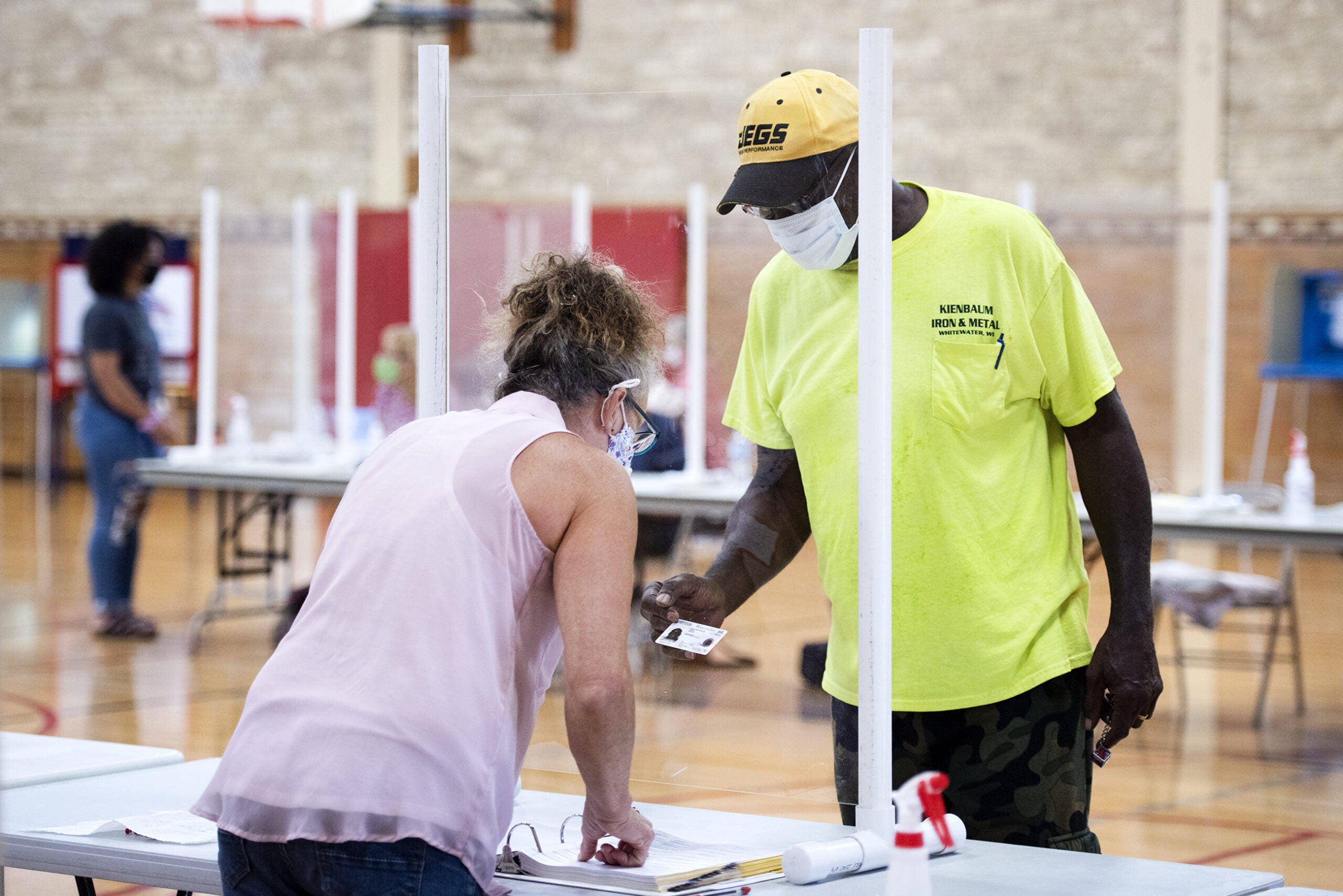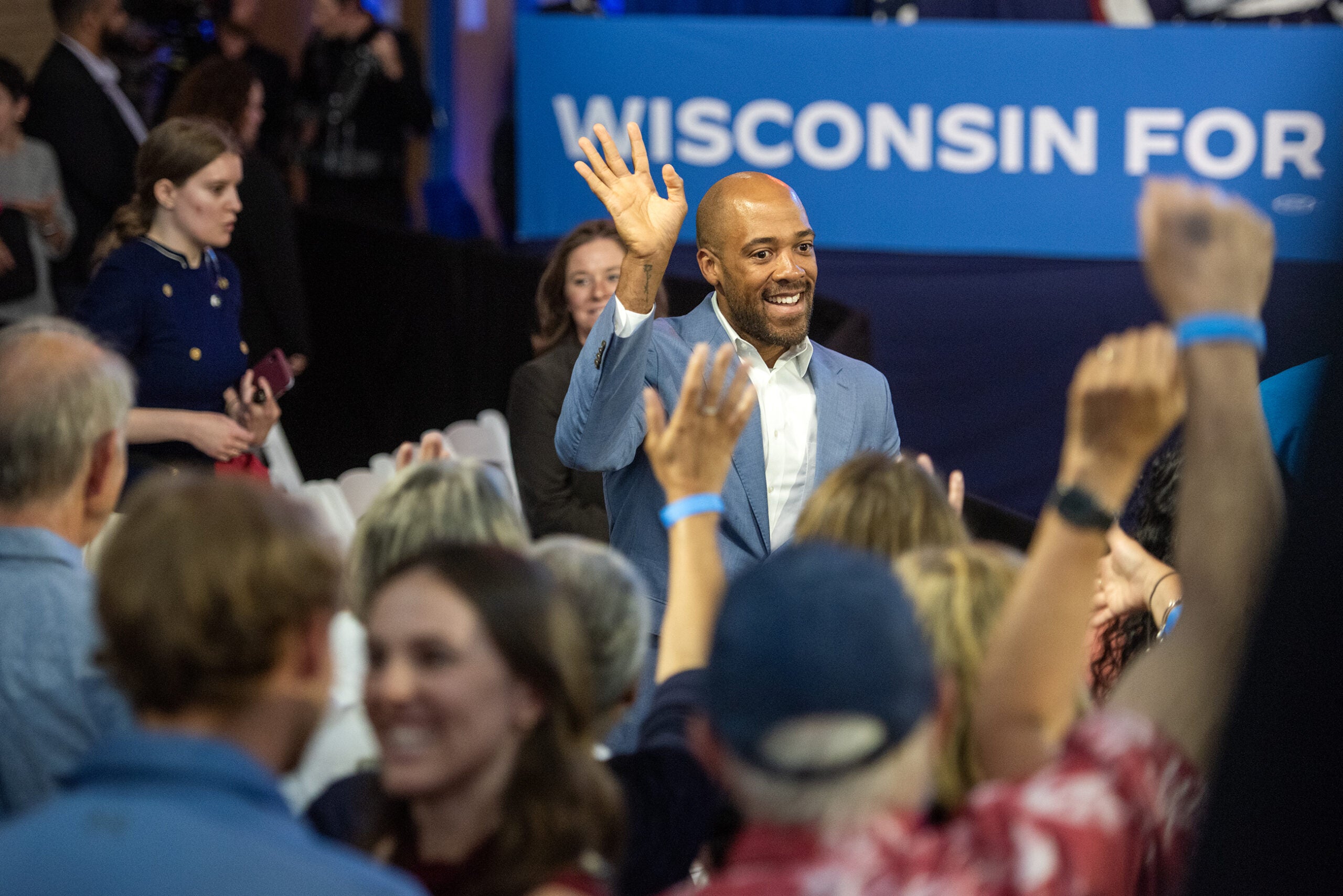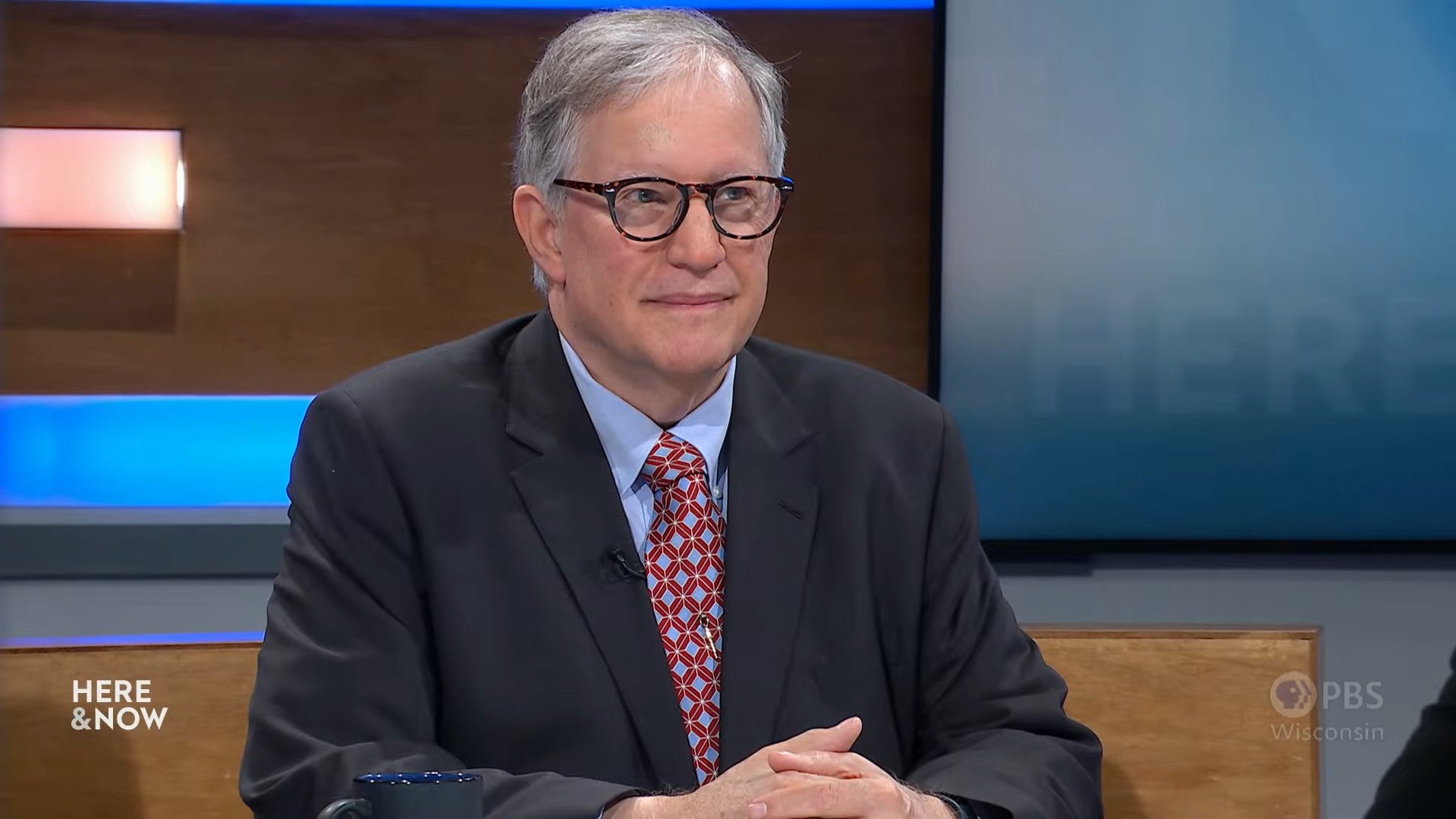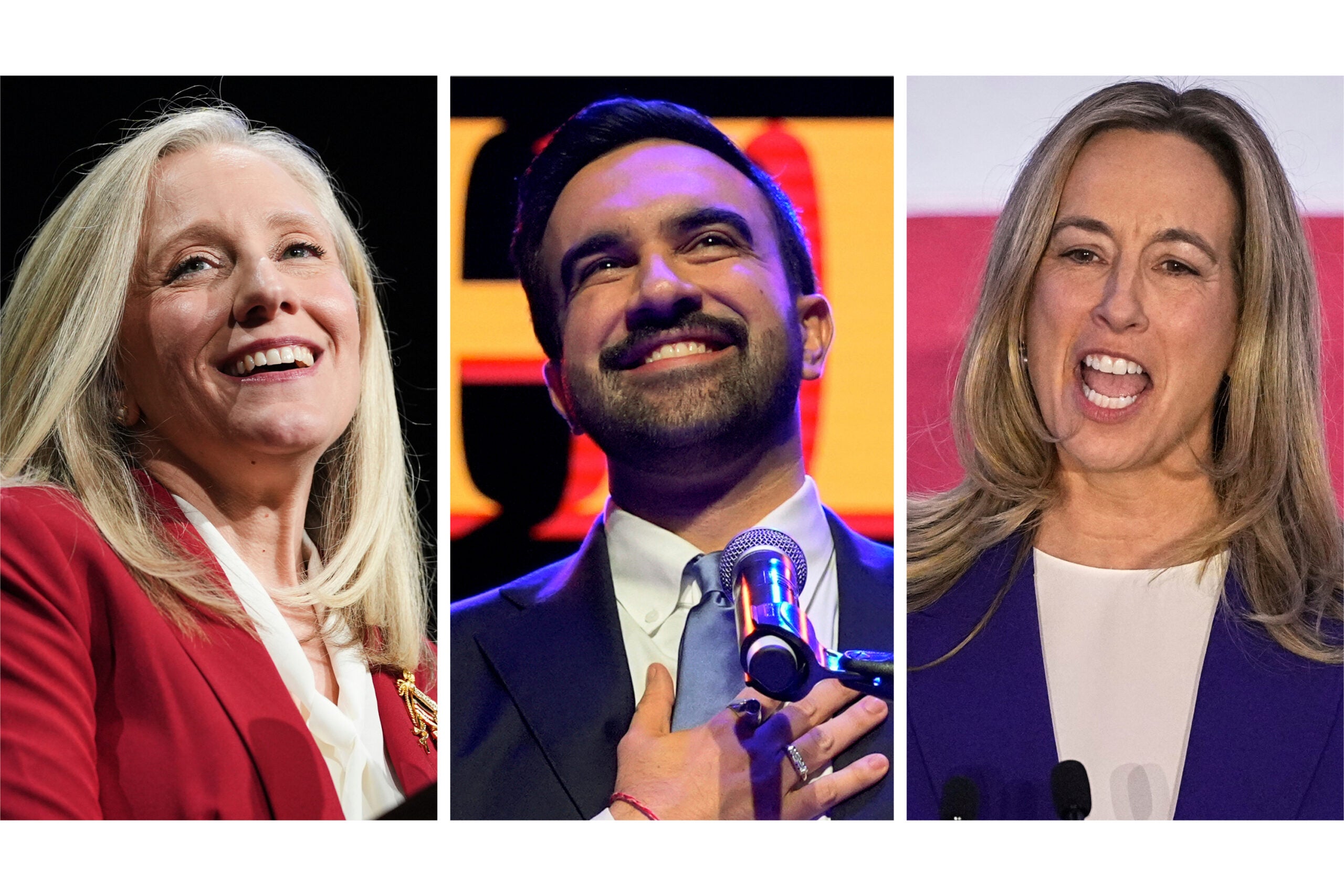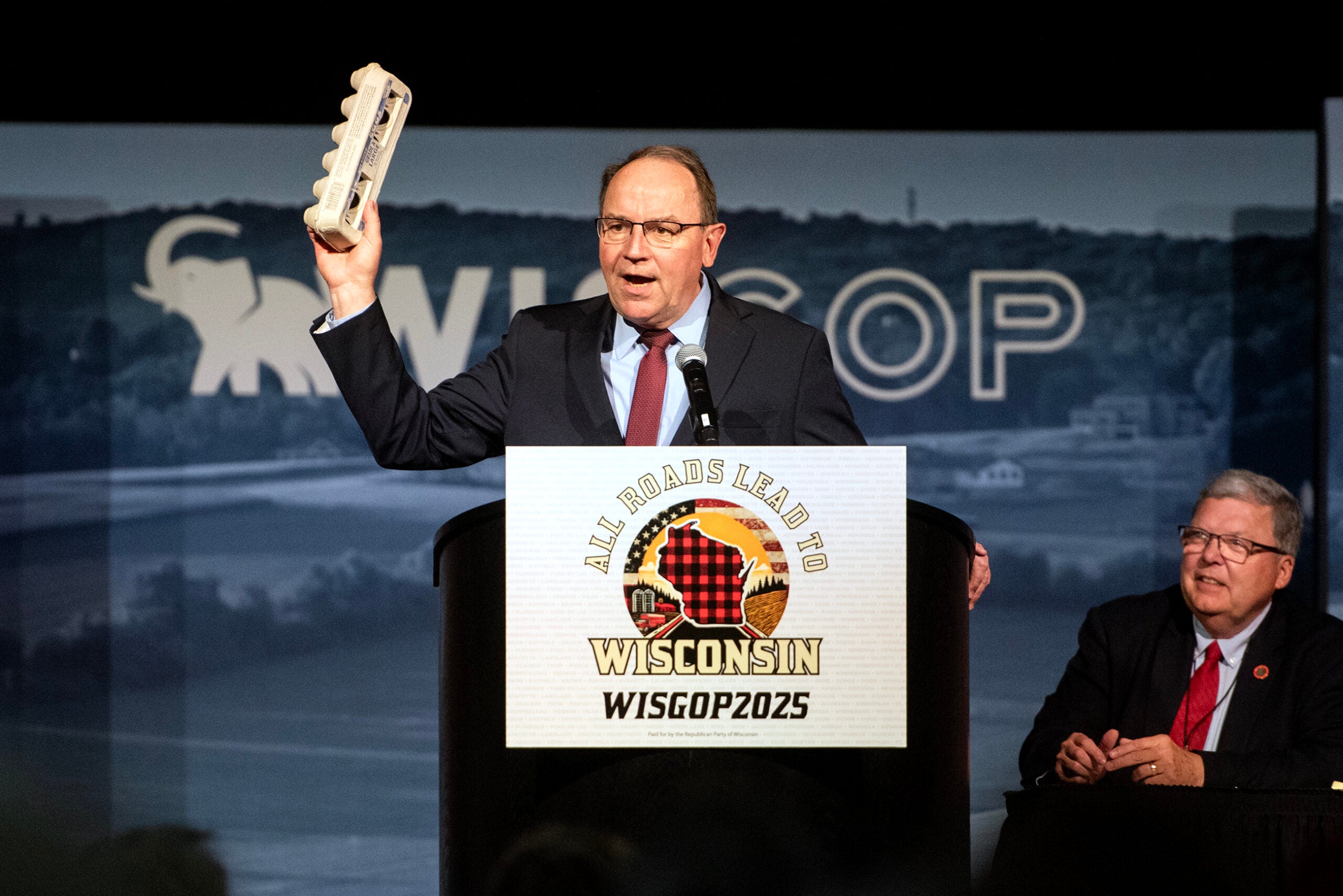Voters are heading to the polls Tuesday for Wisconsin’s second statewide election since the start of the COVID-19 pandemic.
There’s no statewide race on the ballot Tuesday, but there are primaries with statewide implications.
Polls are open from 7 a.m. to 8 p.m. Tuesday. Voters can find out their polling places and what’s on their ballot at myvote.wi.gov.
News with a little more humanity
WPR’s “Wisconsin Today” newsletter keeps you connected to the state you love without feeling overwhelmed. No paywall. No agenda. No corporate filter.
Here’s a rundown of some of the races to watch:
State Senate Primaries Set Stage For November
In a handful of state Senate districts where incumbent lawmakers retired, voters are likely picking their replacements. In other, more competitive seats, they’ll be picking candidates who could decide whether Republicans win a veto-proof majority in November.
One of the most competitive districts this November could be the 32nd Senate District in western Wisconsin. Three Democrats are vying to fill the Senate seat left vacant by former Sen. Jennifer Shilling, D-La Crosse, the Senate’s former minority leader.
The Democrats running are former state Agriculture Secretary Brad Pfaff of Onalaska, Jayne Swiggum of Gays Mills, and Paul Michael Weber of La Crosse.
The winner will take on former state Sen. Dan Kapanke, R-La Crosse, who Shilling defeated in a 2011 recall election to win the seat. Kapanke lost to Shilling again in 2016 by just 56 votes.
Also retiring this year is longtime state Sen. Dave Hansen, D-Green Bay, who has held the 30th Senate District since 2000. Hansen regularly fended off Republican challenges even as Republican Donald Trump carried his district in 2016.
Democrats Sandra Ewald of Green Bay and Jonathon Hansen of De Pere, who is Dave Hansen’s nephew, are facing off in Tuesday’s primary. The winner will face Republican Eric Wimberger of Green Bay.
In the 10th Senate District, state Sen. Patty Schachtner, D-Somerset, will be defending her seat for the first time since winning it in a January 2018 special election. The win was widely viewed as an upset for Democrats in a suburban Minneapolis-St. Paul district that has traditionally backed Republicans.
Two Republicans are vying to face Schachtner in November: state Rep. Rob Stafsholt of New Richmond and Cherlie Link of Somerset.
In other districts that lean strongly Republican or Democratic, Tuesday’s election could effectively decide the race.
They include Madison’s 26th Senate District, where there’s an opening for the first time in generations because of the retirement of state Sen. Fred Risser, the nation’s longest serving legislator.
Seven Democrats are running to replace Risser: Brian Benford, Amani Latimer Burris, William Henry Davis III, Nada Elmikashfi, John Imes, Aisha Moe, and former state Rep. Kelda Roys, all of Madison. There are no Republicans running for the seat.
There’s also a massive Democratic primary for one of the Assembly seats within Risser’s Senate district which was previously held by state Rep. Chris Taylor, who is now a Dane County judge. Madison Democrats running for the 76th Assembly District seat include Heather Driscoll, Dewey Bredeson, Tyrone Williams, Francesca Hong, Nicki Vander Meulen, Marsha Rummel and Ali Maresh. The winner will face Madison Republican Patrick Hull in November.
In the nearby 16th Senate District, a Democratic seat where state Sen. Mark Miller of Monona is retiring, there are two Democrats running: state Rep. Melissa Sargent of Madison and Andrew McKinney of Cottage Grove. The winner will face Republican Scott Barker of Sun Prairie in November.
And in the 28th Senate District in conservative southeast Wisconsin, where Big Bend Republican Dave Craig is stepping down, there are five Republicans on the primary ballot: Steve Bobowski of Franklin, Dan Griffin of Greendale, Jim Engstrand of Milwaukee, Julian Bradley of Franklin and Marina Kroft of Franklin. The winner of the heavily-Republican district will face Democrat Adam Murphy of Franklin in November.
Congressional Primaries
Voters will also be choosing candidates for their congressional ballots in November with contested primaries in the 1st Congressional District in southeast Wisconsin and the 3rd Congressional District in western Wisconsin.
In the 1st District, Democrats Josh Pade of Bristol and Roger Polack of Racine are competing in the primary for a chance to face Janesville Republican U.S. Rep. Bryan Steil in November.
In the 3rd Congressional District, longtime U.S. Rep. Ron Kind, D-La Crosse, faces Mark Neumann of La Crosse in the Democratic primary. In the Republican primary, Derrick Van Orden of Hager City faces Jessie Ebden of Eau Claire.
Another COVID-19 Election, Now With More Polling Places
Some of the lasting images of Wisconsin’s April 7 election came from Milwaukee and Green Bay, where a shortage of poll workers and polling places led to long lines for voters. But both of those cities will have more voting locations this time around.
In Milwaukee, where just five polling places were open in April, Claire Woodall-Vogg, executive director of the city Election Commission, said there will be 168 polling places. The city says it has trained more than 700 new election inspectors.
And in Green Bay, where there were just two polling locations in the spring, Mayor Eric Genrich said there will be 17 polling locations.
According to the Wisconsin Elections Commission, Gov. Tony Evers’ statewide face mask mandate requires all poll workers to wear face coverings. Voters are encouraged to wear a mask, but it’s not required.
“We are asking voters to observe social distancing inside and outside of polling places, and not to create disturbances about the wearing or not wearing of masks or face coverings,” said Meagan Wolfe, Wisconsin’s chief elections official in a statement.
As was the case in April, many voters won’t vote at the polls Tuesday, casting absentee ballots instead. As of Monday morning, roughly a half-million voters had returned absentee ballots.
National Guard Again Assisting At Polling Places
The Wisconsin National Guard is assisting at polling sites for today’s primary election, as it did for April’s election.
The head of the guard, Major General Paul Knapp, told WPR’s “The Morning Show” that there are nearly 700 service members working at the polls in 40 counties and 141 municipalities.
The Guard provided about 2,400 poll workers for Wisconsin’s April elections and presidential primary.
Gov. Tony Evers directed the guard to support polling places last week, after state elections officials announced a shortage of about 900 poll workers.
Knapp said the guard also worked ahead of primary day to distribute additional protective equipment and sanitizing supplies to polling places, including “over 9,700 liters of disinfectant, 21,000 bottles of hand sanitizer, 330,000 pens, 5,500 spray bottles, 120,000 masks and 330,000 disinfecting wipes.”
Editor’s note: Brady Carlson contributed reporting to this story.
Wisconsin Public Radio, © Copyright 2025, Board of Regents of the University of Wisconsin System and Wisconsin Educational Communications Board.

